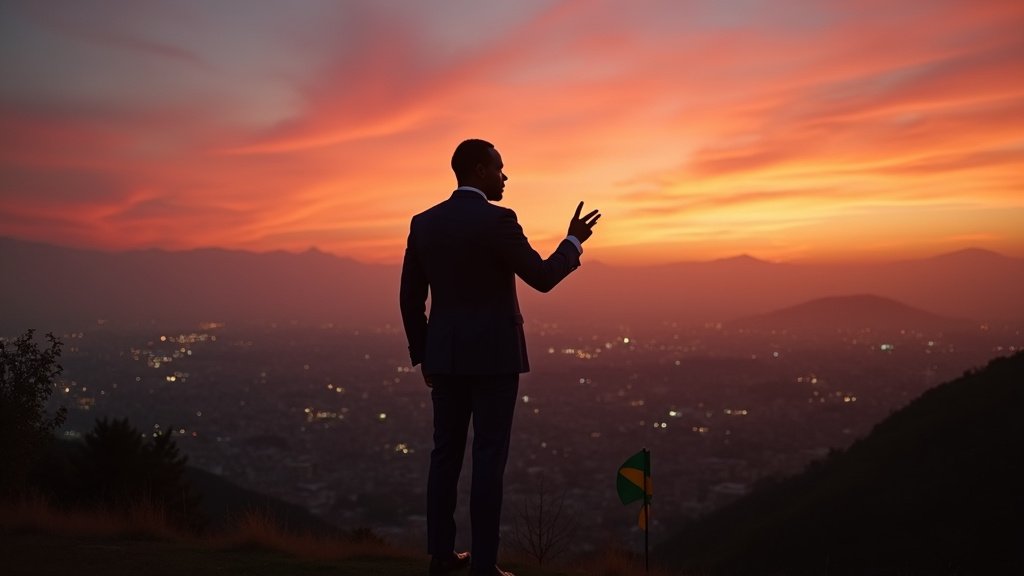Kingston, Jamaica – In a pivotal election that dramatically reshaped the nation’s political landscape, the Jamaica Labour Party (JLP), led by Prime Minister Andrew Holness, secured a resounding victory in the General Election held on September 3, 2020. The outcome saw the JLP clinching 49 of the 63 parliamentary seats, a significant increase from its previous standing, while the People’s National Party (PNP), under the leadership of Dr. Peter Phillips, was reduced to 14 seats. This decisive result marked the JLP’s second consecutive win, a historical feat not achieved by the party since 1980, and dominated the news cycle across Jamaica.
The election, initially dubbed as a contest where both major parties expressed strong confidence, ultimately delivered a clear mandate to the incumbent JLP. Earlier pronouncements from figures like Peter Bunting of the PNP, who optimistically stated the party had “peaked at just the right time,” and JLP Campaign Chairman Dr. Christopher Tufton, who cited internal polls indicating momentum, set the stage for a highly anticipated electoral battle. However, the final tally underscored a profound shift in voter sentiment.
The Road to the Polls: A Pandemic Election
The 2020 General Election was called early by Prime Minister Holness, nearly a year before it was constitutionally due, a strategic move aimed at ensuring a unified national response to the burgeoning COVID-19 pandemic. The campaign unfolded against an unprecedented backdrop of public health challenges, including both the coronavirus and the ongoing dengue fever epidemic. These circumstances heavily influenced campaigning strategies and voter participation.
Both parties adapted their approaches, with the JLP, under the guidance of its General Secretary Dr. Horace Chang, asserting that its campaign strategies would not exacerbate the spread of COVID-19. Conversely, PNP General Secretary Julian Robinson acknowledged the inherent difficulties in curtailing traditional, crowd-drawing activities like motorcades and large rallies, given Jamaica’s deeply ingrained political culture. In a display of commitment to peaceful elections, Prime Minister Holness and Dr. Peter Phillips jointly signed a Code of Political Conduct, urging all candidates and supporters to maintain a campaign free from intimidation and violence.
Campaign Themes and Key Players
The JLP’s campaign, rallied under the resonant headline “Recovering Stronger,” strategically focused on the government’s economic achievements, infrastructure development, effective COVID-19 management, and job creation. This message evidently resonated with a significant portion of the electorate, leading to their landslide triumph.
Meanwhile, the PNP’s platform included a proposal for a national referendum on removing Queen Elizabeth II as Head of State, signaling a progressive constitutional agenda. Key figures played crucial roles in their respective parties’ efforts. Dr. Christopher Tufton, serving as the Minister of Health and Wellness, was a visible presence, presenting on COVID-19 protocols for the JLP’s internal executive meetings and playing a pivotal role in the party’s campaign machinery. Peter Bunting, a former PNP presidential hopeful and co-director of the party’s election campaign, was a central figure for the opposition. However, he notably lost his Manchester Central seat, which he had held since 2007, to the JLP’s newcomer, Rhoda Moy-Crawford, highlighting the extent of the JLP’s dominance.
Low Turnout and Political Repercussions
One of the most striking features of the 2020 election was the remarkably low voter turnout, which stood at approximately 37.85 percent – the lowest since the 1983 general election. This decline was largely attributed to public health concerns surrounding the pandemic, alongside a palpable sense of voter apathy and frustration.
The election results sparked significant internal reflection within the PNP. The party experienced a considerable reduction in its vote count, securing 127,871 fewer votes than in the 2016 election. This led to many prominent PNP members, including Peter Bunting, losing their seats. In the wake of this substantial defeat, Dr. Peter Phillips announced his intention to resign as party leader, paving the way for a leadership contest later that year, which was ultimately won by Mark Golding in November 2020.
Prime Minister Holness, in his post-election address, acknowledged the low voter participation and emphasized the need to rebuild trust in the political process. The JLP’s impressive performance marked a “massive realignment” of Jamaica’s political landscape, signaling a clear shift in the country’s political allegiances and presenting a fresh mandate for the governing party to navigate the nation through ongoing challenges.

